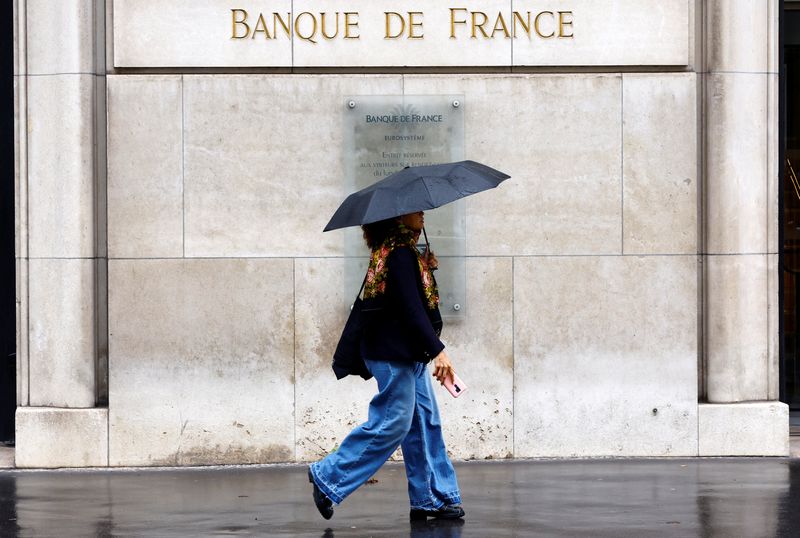PARIS (Reuters) – France’s economy will grow more slowly than expected in the next two years as its home-grown political turmoil adds to the global volatility weighing on activity, the central bank forecast on Monday in its quarterly outlook.
After growth of 1.1% this year, the euro zone’s second biggest economy will expand 0.9% in 2025, the Bank of France estimated, trimming its forecast from 1.2% in September.
The central bank said government belt-tightening and political uncertainty would weigh on consumer spending and private sector investment.
A series of political crises this year has rattled consumers and businesses, making them cautious about the future and further clouding an outlook already darkened by potential U.S. tariff hikes.
President Emmanuel Macron named the fourth prime minister this year on Friday after opposition lawmakers voted out the previous government in a dispute over its 2025 budget bill, which had aimed to reduce the public deficit to 5% of output from 6.1% this year.
If the new government proposes less belt-tightening in a new budget bill, any boost to growth would still be offset by prolonged political uncertainty over the state of public finances, the Bank of France said.
“If our country remains in budget denial due to political friction, it would risk progressively slipping further behind economically and versus other European countries,” Bank of France Governor Francois Villeroy de Galhau told Le Figaro newspaper.
Growth was seen recovering to 1.3% in 2026 and 2027 as consumers benefit from wages growing faster than inflation. But that growth could take a hit if people kept putting their spare cash into savings in the face of all the uncertainty.
After average inflation this year of 2.4%, the Bank of France forecast it would remain below the European Central Bank’s 2% target for the next three years, with the rate easing to 1.6% in 2025 before accelerating to 1.7% in 2026 and 1.9% in 2027.
In the absence of more strict belt-tightening, the central bank said it expected France’s debt burden was set to keep rising to 117% of GDP by 2027.
Credit ratings agency Moody’s (NYSE:MCO) unexpectedly downgraded France’s rating on Friday, citing in particular the political fragmentation making meaningful improvement in the public finances more tricky.



